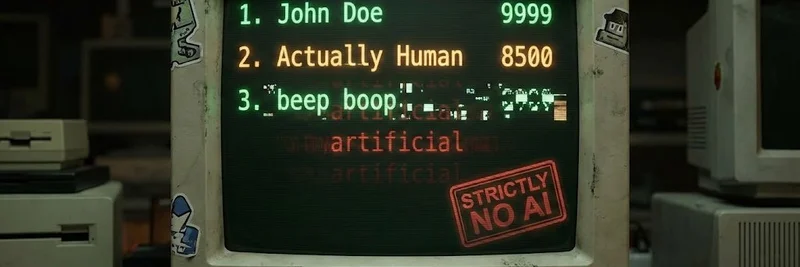In the ever-evolving landscape of blockchain technology, Fogo Chain is making waves with its innovative approach to decentralization and performance. A recent tweet from Fogo Chain highlights the core philosophy behind their project: "Minimum viable decentralization. Maximum viable performance." This statement, shared by Michael Cahill, CEO of Douro Labs and initial contributor to Pyth Network and Fogo Chain, underscores the project's ambition to redefine the future of Central Limit Order Books (CLOBs) in the crypto space.
Understanding Fogo Chain's Approach
Fogo Chain's strategy is rooted in the idea of achieving the right balance between decentralization and performance. Unlike many blockchain projects that prioritize one over the other, Fogo Chain aims to engineer a system that offers both. This approach is particularly crucial for CLOBs, which require high-speed transactions and robust security to function effectively in the decentralized finance (DeFi) ecosystem.
What is a CLOB?
Before diving deeper, let's clarify what a CLOB is. A Central Limit Order Book is a system that matches buy and sell orders for financial instruments, such as cryptocurrencies. In a decentralized CLOB, this matching process occurs on a distributed network of nodes, eliminating the need for a central authority. This decentralization enhances transparency and reduces the risk of a single point of failure, but it can also introduce challenges related to speed and efficiency.
The Role of Pyth Network and Douro Labs
Fogo Chain's development is closely tied to the work of Pyth Network, a project that delivers real-time market data across multiple blockchains. Pyth Network's collaboration with major financial institutions, including Jane Street, CBOE, Binance, and Bybit, ensures that Fogo Chain has access to high-quality, low-latency data. This is critical for maintaining the performance levels required for CLOBs.
Douro Labs, led by Michael Cahill, plays a pivotal role in this ecosystem. As a key contributor to both Pyth Network and Fogo Chain, Douro Labs is at the forefront of Web3 development, focusing on decentralizing data services and enhancing access to real-time market data. Their expertise is instrumental in shaping Fogo Chain's architecture, which is designed to handle the demands of institutional-grade trading.
Engineering Decentralization
Fogo Chain's approach to decentralization is not about achieving absolute decentralization at all costs. Instead, it focuses on "minimum viable decentralization," ensuring that the network remains secure and resilient without compromising on performance. This is achieved through a combination of geographically distributed validators and built-in oracles, which help prevent issues like power failures, censorship, and government interference.
Geographically Distributed Validators
One of the core innovations of Fogo Chain is its set of decentralized validators located in specific geographic regions. This distribution ensures that the network can continue to operate even if one region experiences disruptions. For example, if a power failure occurs in one location, the system can seamlessly switch to a backup location, maintaining uptime and reliability.
Built-in Oracles
Another critical component is the integration of oracles directly into the blockchain. Oracles are third-party services that provide external data to smart contracts. By embedding oracles into the update process at a foundational level, Fogo Chain ensures that transactions are executed with the most accurate and up-to-date information. This is particularly important for CLOBs, where timely data can make the difference between profit and loss.
Maximizing Performance
While decentralization is a key focus, Fogo Chain does not neglect performance. The project aims to deliver "maximum viable performance," leveraging advanced architectural designs to achieve institutional-level trade speed and throughput. This is essential for CLOBs, which must handle a high volume of transactions quickly and efficiently.
Institutional-Grade Speed
Fogo Chain's architecture is designed to support the speed and scalability required by institutional traders. This includes features like gasless transactions, where necessary, and priority fee mechanisms that ensure critical transactions are processed without delay. These elements are crucial for maintaining a competitive edge in the fast-paced world of crypto trading.
High-Performance Execution Environment
The project envisions a co-located execution environment that combines the strengths of Pyth Network's data infrastructure with Fogo Chain's blockchain capabilities. This environment is tailored to provide a high-performance platform for CLOBs, enabling them to operate at the same level as traditional financial systems.
The Future of CLOBs
Fogo Chain's approach positions it as a leader in the next generation of CLOBs. By addressing the challenges of decentralization and performance head-on, the project is setting the stage for a new era of on-chain trading. The involvement of major institutions and the backing of a strong investor base further underscore the potential impact of Fogo Chain on the DeFi landscape.
A Competitive Environment
The tweet from Fogo Chain suggests that the project is not just about building a platform but also about fostering a competitive environment. By providing a robust infrastructure for CLOBs, Fogo Chain aims to attract a wide range of participants, from individual traders to large financial institutions. This could lead to increased innovation and growth within the DeFi space.
A Head Start in the CLOB Wars
Michael Cahill's comments indicate that Fogo Chain has a significant head start in what he refers to as the "CLOB Wars." The project's early milestones, including raising substantial capital and attracting a strong community, position it as a frontrunner in this competitive arena. As the full video from the Fogees Hub interview is set to drop soon, the crypto community eagerly awaits more details on Fogo Chain's roadmap and vision.
Conclusion
Fogo Chain's commitment to "minimum viable decentralization" and "maximum viable performance" represents a paradigm shift in the development of CLOBs for blockchain technology. By leveraging the expertise of Pyth Network and Douro Labs, and focusing on practical applications, Fogo Chain is poised to transform the way traditional finance intersects with the decentralized world. As the project continues to evolve, it will be fascinating to see how it shapes the future of on-chain trading and the broader DeFi ecosystem.



